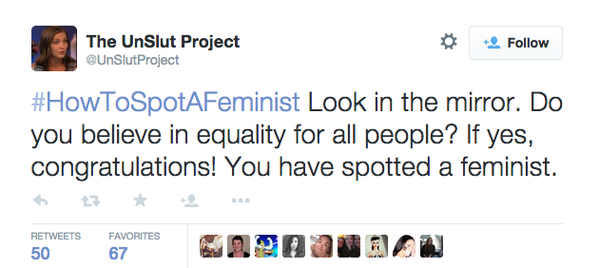We can’t allow our silence—online or in person—to be used as a weapon for the weak minded.
I work in one of the busiest bar districts in Chicago. Right around Wrigley Field, my bar is filled with sports fans during the week and the folks who don’t want to wait in line for the fancier clubs on the block on weekends. Bars like mine are hotbeds for dudes being too aggressive in their attempts at flirting, dudes we have to kick out because of their harassment of female customers. Moments of action, like kicking a guy out, where we did what we should have done, are fleeting. But the times I stayed silent are the times that haunt me.
Sometimes they were little things. My girlfriend came to visit me, waiting until 2am for me to close up so we could go out to the late night bars. When a guy, at last call, came up to her, trying to get her to follow him somewhere else, she said “I have a boyfriend” and pointed at me. He turned to me, eyes wide, and said “Whoa, dude. I’m sorry! I didn’t know!”
I didn’t need his apology. He didn’t drunkenly, loudly, and forcefully try to pull me away from where I was to go with him. He wasn’t belligerent or rude to me. If anyone warranted an apology, it was my girlfriend, not me. But he saw her as mine. My property. I should have said “apologize to her” or anything to remind him of her agency. But I was tired and just wanted to close up. So I said “Don’t worry about it, bro,” and watched as he walked out the door, his friends laughing at his strike out.
Sometimes the moments were bigger. I found a girl who had had way too much to drink “waiting for the bathroom,” by urinating in our storage area. We called her a cab and sent her on her way. Talking to a customer about it later, he immediately asked “So did you fuck her?”
“What?” I asked, not understanding why that would even be a question.
“Did you fuck her? She sounds like she was so wasted, she never would have even known. You could have done anything to her!” he said, a grin stretching across his face as he imagined it being him who found her.
This is where I should have said No, you asshole. That’s rape. That’s horrible. Why would you even think that? Where I should have said Get out of my bar. Where I should have said anything. But I had rent to pay and I needed his tips. So I just said “Nah. That ain’t me,” and walked away.
My problem is silence. My problem is not speaking up when I know something isn’t right.
*****
Recently, a Twitter hashtag started trending, created by a radio show on Glenn Beck’s media network TheBlaze, asking listeners to describe “#HowToSpotAFeminist.” Quickly, it turned into a collection of misogyny and hatred with different anti-feminist factions chiming in. Everyone from Gamer Gaters to Benghazi Truthers had something to say about feminists (mostly about armpit hair and “shrieking”).
I saw the hashtag start to trend, clicked on it, and rolled my eyes, thinking that this collection of bigots and idiots would just go away soon enough. I didn’t say anything, because I didn’t need to. It’d blow over, or better people would take over the hashtag to speak real truth at them.
And this is the heart of my problem. I am in a position where not saying anything is an option. I come from a position of privilege as a straight man with skin light enough to be mistaken for white. I can take comfort in the fact that I will get paid fairly, that my work will be taken seriously because of my Y chromosome, and I can walk home at night without being sexually assaulted.
And that’s shitty.
What Internet trends like #GamerGate and #HowToSpotAFeminist have taught us is that misogyny thrives and expands in digital echo chambers, where bigots and backward thinkers can feel safe and comforted in their antiquated beliefs by clicking a blue tag. When left to their own devices, people like this reinforce their beliefs, free from criticism and with a guise of intellectual superiority because no one is there to challenge their arguments. And when people like me stand aside, thinking that this will go away without our participation, we are validating the memeification of bigotry.
A strong group of feminists jumped in to ridicule the #HowToSpotAFeminist tag. By standing up and saying that they were feminists, people started to clog the stream of hatred.
While it’s a place to start, it’s not enough to just wage Twitter battles. We can’t allow our silence—online or in person—to be used as a weapon for the weak minded.
We can’t continue to dismiss without condemnation. We can’t watch men take advantage of women in bars and we can’t watch the Internet whip itself into a frenzy of misogynistic hashtags that strip the voice away from those who need it most.
And as we do this, we might mess up. We might not be perfect, but we can at least try.
Wyl Villacres is from Chicago. His work has been published in WhiskeyPaper, Wyvern Lit, and Time Out Chicago. Find him at wylvillacres.net or on Twitter: @wyllinois.
Related Links:

